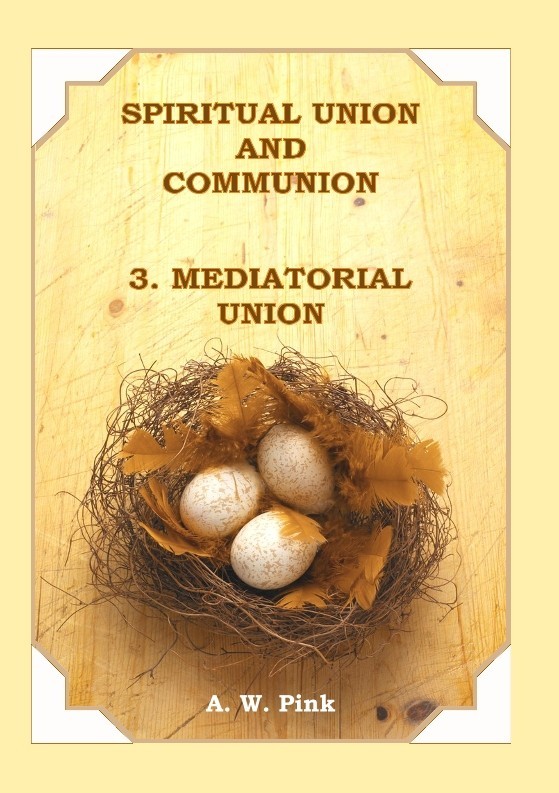
Spiritual Union and Communion - 3. Mediatorial Union
By A W Pink
Extract
Spiritual Union and Communion
A. W. Pink
3. Mediatorial Union.
That which is now to engage our attention is the constitution of the Person of Christ, not as He existed from all eternity with the Father and the Holy Spirit, but as He was upon earth working out the salvation of His Church, and as He now is in Heaven at God’s right hand. It was an essential part of His covenant-engagement that the beloved Son should become the Surety of His people, and in order thereto, assume their nature into union with His Divine Person, and thus become God and man in the Person of one Christ. In consequence of that union all the fullness of the Godhead dwells in Him bodily or personally, in a manner and to an extent it does not, will not, and cannot, in any other. This is the next greatest mystery which is revealed in Holy Writ, being the foundation upon which the Church is built (Matt. 16:18), and concerning which a belief thereof is absolutely essential unto salvation. It is therefore impossible to over estimate the importance, blessedness, and value of this truth.
This Mediatorial union—denominated the “Hypostatic (personal) union” by theologians—or the conjunction of the Divine and human natures in the God-man Mediator, is based upon that infinitely higher union which we sought to contemplate in the last chapter [first booklet]. Divine union—between the Eternal Three—was the foundation of the Mediatorial union. Had there been only one Person in the Divine Essence or Godhead, our salvation had been utterly impossible: we could not be joined to the very nature or essence of God, without either ungodding Him or deifying us. For the elect to have been taken into immediate union with God would produce a change in the Divine nature—an addition to it— something which can never be. Even the Man Christ Jesus could not be taken into immediate union with the Divine Essence absolutely considered, though He could and was with One in that Essence. We are conscious of the fact that we have just stepped into deep water, and perhaps those who are accustomed to paddle in the shallows will be unwilling to follow; but for the sake of the few …